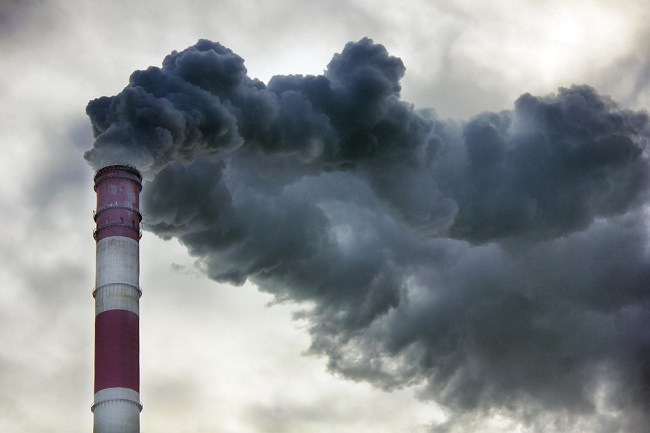6 Causes of Air Pollution and How to Reduce Exposure
The cause of air pollution is not only motor vehicle exhaust. Smoke from burning coal, forests and garbage, as well as odors from chemical household cleaning products can also be sources of air pollution. By knowing the causes of air pollution, handling steps can be taken.
According to WHO, ideal air quality has a concentration of fine particles measuring 2.5 micrometers (PM 2.5) of no more than 5 µg/m3. However, the average value of PM 2.5 concentrations in a number of big cities in Indonesia is about 5 times higher. Air quality in Indonesia has also worsened in recent years.

People who live in big cities, densely populated areas, or industrial areas are more susceptible to exposure to air pollution. Causes of air pollution can range from vehicle exhaust to factory fumes. In fact, clean or pollution-free air is one of the main needs of living things in order to live healthily and comfortably
Causes of Air Pollution
There are many types of substances that become pollutants or cause air pollution. These substances are carbon monoxide (CO), carbon dioxide (CO2), nitrogen dioxide (NO2), sulfur dioxide (SO2), pesticides, radon (Rn), particulate matter (PM), ozone, lead (Pb), and volatile organic compounds. (VOC).
These pollutants can be formed from the following things:
1. Vehicle fumes
Vehicle exhaust, both motorcycles and cars, is one of the main causes of air pollution. This smoke is formed from the burning of fossil fuels, such as petroleum, which are usually used to produce energy for transportation
Vehicle emissions contain carbon dioxide gas which then forms ozone on the earth's surface and becomes pollution. The concentration of ozone that causes air pollution can increase if the weather is hot and the humidity is low
2. Power plant
Just like vehicles, power plants also use fossil fuels such as oil and coal to produce energy. Because of its use on a large scale, the results of this combustion can contribute nearly 80% to air pollution.
In addition to carbon dioxide, the burning of fossil fuels at power plants is also a cause of air pollution. This is because this activity produces emissions of sulfur nitrogen oxides, carbon dioxide, particulates (PM), and sulfur dioxide (SO2).
3. Industrial smoke
The billowing smoke that comes from the tall chimneys of the factory may be familiar to you. Well, the smoke waste contains sulfur dioxide, nitrogen dioxide, and carbon monoxide, among others. Apart from being a cause of air pollution, industry and manufacturing also contribute waste to water and soil.
3. Agricultural waste
The agricultural sector also contributes to air pollution, you know. Excessive use of fertilizers and improper fertilizers can release a gas into the air called ammonia (NH3). In addition, the process of spraying pesticides and burning for land clearing also causes air pollution.
5. Forest fires
Forest fires can contribute to air pollution by producing pollutants in the form of nitrogen dioxide, ozone, aromatic hydrocarbons, and lead. Apart from being a cause of air pollution, forest fires also have an impact on reducing the supply of water, electricity and gas, as well as causing climate change.
Not only that, the dry season will usually come sooner because of this disaster.
6. Household activities
If you have a habit of burning household waste, stop it from now on. Burning garbage can produce pollutants that have an impact on climate change and endanger health.
In addition, smoking, painting the walls of the house, using air conditioning (AC), and using cleaning products can also contribute to indoor air pollution.
How to Reduce Exposure to Air Pollution
When you inhale air pollution, you can feel headaches, dizziness, fatigue easily, and irritation of the eyes, nose and throat. This effect is temporary and can be lost by avoiding sources of pollution, without the need to get special treatment.
However, exposure to air polluting substances can enter the lungs and cause or worsen respiratory diseases, such as asthma, bronchitis, emphysema, and chronic obstructive pulmonary disease (COPD).
The risk of diabetes, heart disease, cancer, Alzheimer's disease, Parkinson's disease, and stroke will also increase if you constantly inhale pollutants. In addition, polluted air is associated with decreased mental health, such as depression and anxiety disorders.
Air pollution is difficult to avoid. However, to prevent the impact of air pollution on health, you can reduce your exposure by taking the following steps:
- Use public transportation whenever possible
- Wear a mask when leaving the house.
- Use an air purifier (air purifier) in the house whenever possible.
- Clean house ventilation regularly to prevent dust accumulation.
- Gardening in the yard of the house or multiply the plants in the house.
- Avoid exercising outdoors if the air pollution level is not good.
- Avoid burning household waste, including wood branches.
- Limit air fresheners with chemicals.
If you experience complaints of shortness of breath, headaches and coughs that don't heal due to frequent exposure to air pollution causes or living in an area where the air is polluted by pollutants, you should consult a doctor to get an appropriate examination and treatment.
Label : Health
Comments
Post a Comment